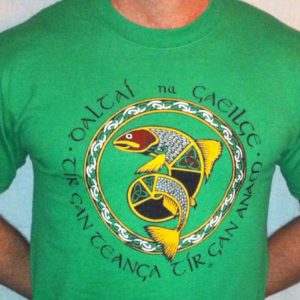[At the] end of every gospel [is] a collection.
Note: It is a precept of the Church that members must contribute to its support. “Íocaigí le Céasar na nithe is le Céasar agus le Dia na nithe is le Dia.” (Render unto Caesar the things that are Caesar’s and unto God the things that are God’s.) Matha (Mark) 22:21. This includes Peter’s Pence, a tithe created for the Pope in eighth century England. One penny was due from anyone with income greater than thirty pennies per year. It was payable on the Feast of St. Peter.
Peter’s Pence was not paid by medevial Ireland, marking the beginning of an epoch of English rule. Henry II, the King of England, invaded Ireland in 1171 with a Papal Bull, “Laudabiliter,” from Adrian IV, the only English Pope. It authorized the invasion to reform the Irish Church and to collect Peter’s Pence. The Archbishops of Tuam and Cashel and the Kings of Waterford and Dublin met at the Synod of Cashel in late 1171. There it was decreed to submit to the tithe and to conform to the customs of the continental Church. It also recognized Henry as the King of Ireland.
Note also: Both the Irish word ‘soiscéal’ and the equivalent English word ‘gospel’ are translated literally from the Greek word ‘eaungelion,’ which means good tidings. ‘Gospel’ evolved from the Middle English ‘godspell’ that comes from the older Anglo Saxon word ‘gödspel’ which meant ‘good news.’ The Irish prefix ‘so-‘ means ‘easy to’ or ‘good’ while ‘scéal’ means ‘news’ or ‘story.’ Hence ‘soiscéal’ literally means ‘good news.’
